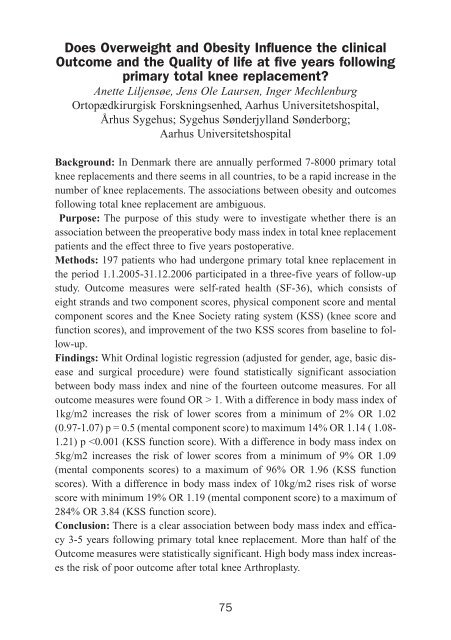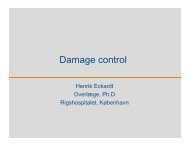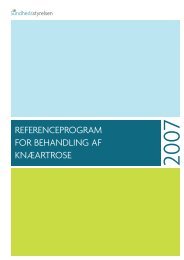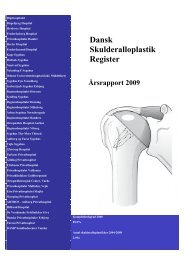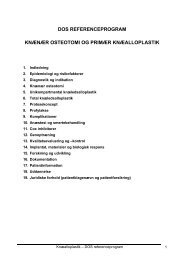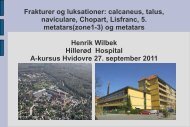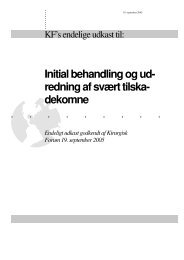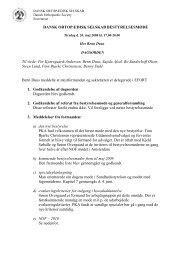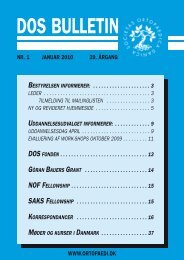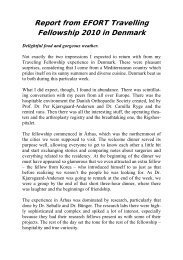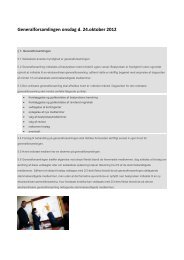DOS BULLETIN - Dansk Ortopædisk Selskab
DOS BULLETIN - Dansk Ortopædisk Selskab
DOS BULLETIN - Dansk Ortopædisk Selskab
You also want an ePaper? Increase the reach of your titles
YUMPU automatically turns print PDFs into web optimized ePapers that Google loves.
2010-378_<strong>DOS</strong> nr. 3 2010 29/09/10 10:08 Side 75<br />
Does Overweight and Obesity Influence the clinical<br />
Outcome and the Quality of life at five years following<br />
primary total knee replacement?<br />
Anette Liljensøe, Jens Ole Laursen, Inger Mechlenburg<br />
Ortopædkirurgisk Forskningsenhed, Aarhus Universitetshospital,<br />
Århus Sygehus; Sygehus Sønderjylland Sønderborg;<br />
Aarhus Universitetshospital<br />
Background: In Denmark there are annually performed 7-8000 primary total<br />
knee replacements and there seems in all countries, to be a rapid increase in the<br />
number of knee replacements. The associations between obesity and outcomes<br />
following total knee replacement are ambiguous.<br />
Purpose: The purpose of this study were to investigate whether there is an<br />
association between the preoperative body mass index in total knee replacement<br />
patients and the effect three to five years postoperative.<br />
Methods: 197 patients who had undergone primary total knee replacement in<br />
the period 1.1.2005-31.12.2006 participated in a three-five years of follow-up<br />
study. Outcome measures were self-rated health (SF-36), which consists of<br />
eight strands and two component scores, physical component score and mental<br />
component scores and the Knee Society rating system (KSS) (knee score and<br />
function scores), and improvement of the two KSS scores from baseline to follow-up.<br />
Findings: Whit Ordinal logistic regression (adjusted for gender, age, basic disease<br />
and surgical procedure) were found statistically significant association<br />
between body mass index and nine of the fourteen outcome measures. For all<br />
outcome measures were found OR > 1. With a difference in body mass index of<br />
1kg/m2 increases the risk of lower scores from a minimum of 2% OR 1.02<br />
(0.97-1.07) p = 0.5 (mental component score) to maximum 14% OR 1.14 ( 1.08-<br />
1.21) p


